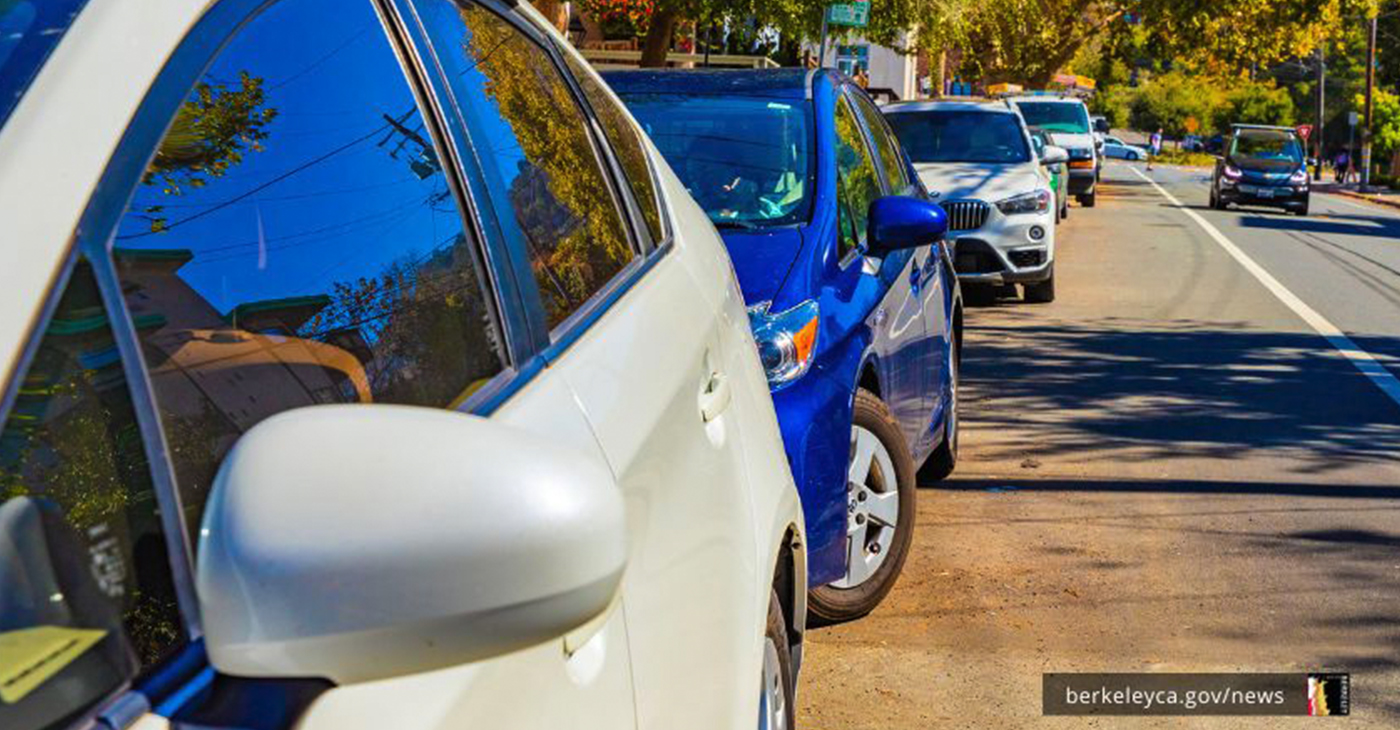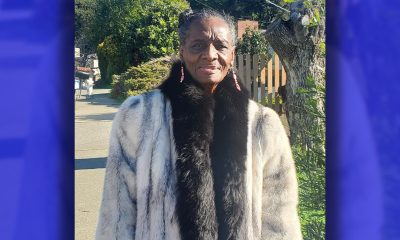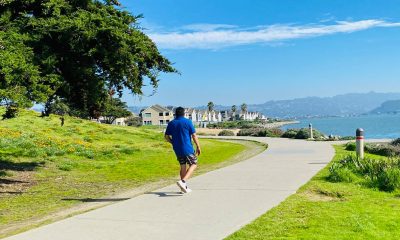Bay Area
Renew your residential parking permit before July 1
Use our parking permit portal to renew your residential parking permit or sign up for a new one by June 30, when 2022-2023 permits expire. Starting July 1, you will need a 2023-2024 permit to avoid getting ticketed in Residential Preferential Parking (RPP) areas.

Renew online, in person, or by mail; existing permits expire June 30, 2023.
Use our parking permit portal to renew your residential parking permit or sign up for a new one by June 30, when 2022-2023 permits expire.
Starting July 1, you will need a 2023-2024 permit to avoid getting ticketed in Residential Preferential Parking (RPP) areas.
Residents with a 2023 permit should have received a renewal notice letter by May 1 with instructions. If you did not receive a notice, use the parking permit portal to renew an existing permit or apply for a new one.
If you do not renew your permit before July 1, 2023 you’ll need to submit a new permit application, including your photo ID and current vehicle registration.
Use our parking permit portal to renew your existing permit, apply for a new permit, or get one-day digital visitor permits. One-day digital visitor permits are valid for 24 hours from the time of activation. A hangtag visitor permit for a single day or 14 days can be purchased in person at the Customer Service Center.
RENEW YOUR PERMIT ONLINE
Most residents can use their existing login information to renew parking permits on the portal.
Some residents may need to use a link code from their renewal letter to renew their permits. If you lost the letter, request the code by calling 311 inside Berkeley limits or (510) 981-2489.
If your renewal has incorrect information, such as listing the wrong RPP area, use the portal to apply for a new permit online. Likewise, residents whose permits are labeled “Suspended” in the online portal must re-apply to verify residency.
New online applications will be approved in 5-7 business days, and you will receive a confirmation receipt via email when your application is submitted and again once it is approved. Permits are not valid until an application has been approved and payment is received.
RENEW BY MAIL OR IN-PERSON
To renew by mail, fill out the payment coupon included with your renewal letter, enclose payment by check or money order, and send it to the address listed in the letter, City of Berkeley RPP Permit Renewal, PO Box 29, Berkeley CA 94701.
To renew in person, bring your renewal letter to the Customer Service Center to complete the purchase.
In-person purchases may be completed by cash, check, money order, Visa, or Mastercard.
APPLY FOR A NEW PERMIT
If you need to re-apply for a permit, you may do so via the parking permit portal, in person, or by mail.
If applying by mail, download the application and mail the completed forms with your supporting documents and payment by check or money order to:
City of Berkeley Customer Service Center
1947 Center St, 1st floor
Monday – Thursday: 8:30 am – 4:00 pm
If applying in person, bring your proof of residency documents to the Customer Service Center to fill out an application and purchase a permit by cash, check, money order, Visa, or Mastercard.
Note that permits are not valid until an application has been approved and payment is received. A mailed application will take longer to process.
Online or in-person renewals are the safest ways to avoid a ticket.
ENFORCED THROUGH LICENSE PLATES, NOT STICKERS
Once your application has been approved, your license plate will be your permit. You will not receive a sticker in the mail.
Parking enforcement officers have been using license plate readers since 2016. This database is a closed system, not linked to any other database, such as DMV databases. Violation data is kept for one year. Our privacy policy is that no data is kept for more than 30 days unless we act, such as through a citation or violation found.
Be sure to renew your permit online, by mail, or in person by June 30.
Activism
Oakland Post: Week of April 24 – 30, 2024
The printed Weekly Edition of the Oakland Post: Week of April 24 – 30, 2024

To enlarge your view of this issue, use the slider, magnifying glass icon or full page icon in the lower right corner of the browser window. ![]()
Alameda County
DA Pamela Price Stands by Mom Who Lost Son to Gun Violence in Oakland
Last week, The Post published a photo showing Alameda County District Attorney Pamela Price with Carol Jones, whose son, Patrick DeMarco Scott, was gunned down by an unknown assailant in 2018.

Publisher’s note: Last week, The Post published a photo showing Alameda County District Attorney Pamela Price with Carol Jones, whose son, Patrick DeMarco Scott, was gunned down by an unknown assailant in 2018. The photo was too small for readers to see where the women were and what they were doing. Here we show Price and Jones as they complete a walk in memory of Scott. For more information and to contribute, please contact Carol Jones at 510-978-5517 at morefoundation.help@gmail.com. Courtesy photo.
Bay Area
State Controller Malia Cohen Keynote Speaker at S.F. Wealth Conference
California State Controller Malia Cohen delivered the keynote speech to over 50 business women at the Black Wealth Brunch held on March 28 at the War Memorial and Performing Arts Center at 301 Van Ness Ave. in San Francisco. The Enterprising Women Networking SF Chapter of the American Business Women’s Association (ABWA) hosted the Green Room event to launch its platform designed to close the racial wealth gap in Black and Brown communities.

By Carla Thomas
California State Controller Malia Cohen delivered the keynote speech to over 50 business women at the Black Wealth Brunch held on March 28 at the War Memorial and Performing Arts Center at 301 Van Ness Ave. in San Francisco.
The Enterprising Women Networking SF Chapter of the American Business Women’s Association (ABWA) hosted the Green Room event to launch its platform designed to close the racial wealth gap in Black and Brown communities.
“Our goal is to educate Black and Brown families in the masses about financial wellness, wealth building, and how to protect and preserve wealth,” said ABWA San Francisco Chapter President LaRonda Smith.
ABWA’s mission is to bring together businesswomen of diverse occupations and provide opportunities for them to help themselves and others grow personally and professionally through leadership, education, networking support, and national recognition.
“This day is about recognizing influential women, hearing from an accomplished woman as our keynote speaker and allowing women to come together as powerful people,” said ABWA SF Chapter Vice President Velma Landers.
More than 60 attendees dined on the culinary delights of Chef Sharon Lee of The Spot catering, which included a full soul food brunch of skewered shrimp, chicken, blackened salmon, and mac and cheese.
Cohen discussed the many economic disparities women and people of color face. From pay equity to financial literacy, Cohen shared not only statistics, but was excited about a new solution in motion which entailed partnering with Californians for Financial Education.
“I want everyone to reach their full potential,” she said. “Just a few weeks ago in Sacramento, I partnered with an organization, Californians for Financial Education.
“We gathered 990 signatures and submitted it to the [California] Secretary of State to get an initiative on the ballot that guarantees personal finance courses for every public school kid in the state of California.
“Every California student deserves an equal opportunity to learn about filing taxes, interest rates, budgets, and understanding the impact of credit scores. The way we begin to do that is to teach it,” Cohen said.
By equipping students with information, Cohen hopes to close the financial wealth gap, and give everyone an opportunity to reach their full financial potential. “They have to first be equipped with the information and education is the key. Then all we need are opportunities to step into spaces and places of power.”
Cohen went on to share that in her own upbringing, she was not guided on financial principles that could jump start her finances. “Communities of color don’t have the same information and I don’t know about you, but I did not grow up listening to my parents discussing their assets, their investments, and diversifying their portfolio. This is the kind of nomenclature and language we are trying to introduce to our future generations so we can pivot from a life of poverty so we can pivot away and never return to poverty.”
Cohen urged audience members to pass the initiative on the November 2024 ballot.
“When we come together as women, uplift women, and support women, we all win. By networking and learning together, we can continue to build generational wealth,” said Landers. “Passing a powerful initiative will ensure the next generation of California students will be empowered to make more informed financial decisions, decisions that will last them a lifetime.”
-

 Activism4 weeks ago
Activism4 weeks agoOakland Post: Week of March 27 – April 2, 2024
-

 #NNPA BlackPress4 weeks ago
#NNPA BlackPress4 weeks agoBeloved Actor and Activist Louis Cameron Gossett Jr. Dies at 87
-

 Community1 week ago
Community1 week agoFinancial Assistance Bill for Descendants of Enslaved Persons to Help Them Purchase, Own, or Maintain a Home
-

 Activism3 weeks ago
Activism3 weeks agoOakland Post: Week of April 3 – 6, 2024
-

 Business1 week ago
Business1 week agoV.P. Kamala Harris: Americans With Criminal Records Will Soon Be Eligible for SBA Loans
-

 Activism2 weeks ago
Activism2 weeks agoOakland Post: Week of April 10 – 16, 2024
-

 Community1 week ago
Community1 week agoAG Bonta Says Oakland School Leaders Should Comply with State Laws to Avoid ‘Disparate Harm’ When Closing or Merging Schools
-

 Community6 days ago
Community6 days agoOakland WNBA Player to be Inducted Into Hall of Fame























































